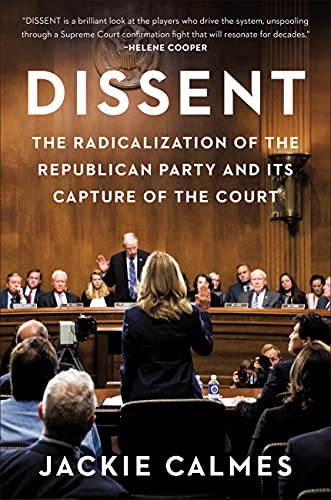Supplement to Parts #1 & #2 Regarding
In theory, at least, an insurance policy could be restricted to one or more”virtual world(s),” instead of cyberspace. In the area of insurance, if something can be done in theory, it is likely to be done in practice.
Some of the former types of policies, “real world” policies have taken years to change, at least when the policy started using a form for the main part and then attaching endorsements. In fact, as to true content, more than one policy has taken 100 years or longer to change the commonly used central ideas, e.g., what was insured, what was not, and what was excluded, not to mention terminology, e.g., “accidence” changed into “occurrence.”
Cyber-world insurance policies will also undergo change, and they will probably go much faster since the technology is and will change much more rapidly. These changes are not those between a 1936 Chevy and one from 1947. They are and will be much larger, and their use is changing at “breakneck” speed.
Cyber-insurance may presently find many sorts of existing policies: homeowners, commercial building owners, some forms of liability insurance, health insurance, and many more. Usually, this is done by endorsement.
Of course, lots of insurance attended to the cyber-world will not change. The draftsmen of the policy will have gotten it right the first time, and/or there haven’t been relevant changes in that which is being insured. This is extremely unlikely in any amount of time aside from a short one. Some cyberspace “objects” will cause damage or injury to tangible objects to be found in the world outside the cyber-world, e.g., human bodies and other types of objects such as wooden objects. That is likely to be controlled by today’s insurance, with new exclusions as needed (or wanted).
Insurance coverage lawyers working on cyber-space problems will not change much: corporate law, real estate, patent law, parts of patent infringement law (maybe), the law regarding other types of intellectual property, directors and officers insurance, insurance for accountancy, and so forth. Of course, some of the types of patents lawyers work on are changing, and the ideas will as well, but the basics of filing patents, obtaining them, and then disputing them probably will not, at least not much.
The laws and the rules of civil procedure may not change much. Parts of the law of evidence may change enormously, as will the context of educating clients, judges, and juries. Still, the general principles of rhetoric will not; though for a time, explaining things to judges, juries, and each other will be more difficult. See Bragg v. Linden Research, Inc. & Rosedale, 487 F.Supp.2d 593 (E.D. Pa., 2007). (This was an opinion on several “virtual reality” issues using established procedural law. “Bragg contends that Defendants, the operators of the [relevant] virtual world, unlawfully confiscated his virtual property and denied him access to their virtual world. Ultimately at issue, in this case, where the novel questions what rights and obligations grow out of the relationship between the owner and creator of a virtual world and its resident-customers. While the property and the world where it is found are ‘virtual,’ the dispute is not.”)
Some parts of the nature and rules of professional practice for lawyers may also change, so far as content is concerned. Lawyers are now worried about their use of the “cloud” and their obligations to keep client information confidential. No doubt other existing professions will have similar additions and new twists.
Governmental Regulation of Insurers. It took a century or so for government regulation to develop to where it is now for the insurance industry. Such regulations are already there for application to the cyber-world, but they will also develop far faster than they did for real-world insurance. New government regulations of insureds will be necessary since there are new sets of immaterial “objects” to be insured together will combinations of them and their uses by insureds. The extent of regulation may increase or diversify. I would not be surprised to see more insurer regulation shift to the federal government. At the same time as these changes take place, some modes of regulation will not change. State governments will still require some types of insurance to submit to substantial regulation of various types. State-approved insurers will still have to use some state-approved forms (when they exist). And surplus lines used in cyberspace insurance will be required to deal with departments of insurance in different ways and diminished ways from those of approved carriers and to different degrees.
Insurer Regulation of the Cyber-World and Its “Relative,” the Virtual-World. Let us start with an example from the insurance of yesterday and today. Insurers often insist, as an antecedent condition of issuing a policy, that an organization, group, and/or a person either have something or not have something, before they will insure it, them, or him/her. Here is such a provision: country clubs, municipalities, and schools are often required not to have high diving boards for their swimming pools before a company will insure them for potential liabilities. Not having filed more than Y number of lawsuits and/or not having more than Z lawsuits filed against it, is another. These kinds of insurer created regulations are often placed in the application for insurance; then, the application and the answers are made part of the insurance.
It seems obvious that cyber-space and the virtual world will create a whole new and larger group of necessary conditions like these.
To the extent that these kinds of requirements (or others) are to be found in insurance contracts, the insurer will be regulating the market and other behavior of virtual reality and its economic side. law, other kinds of ownership law.
Obviously, some of my assertions about the future of cyberspace insurance are at least somewhat speculative. We shall see.
Changes. I should have mentioned in both Part #1 and Part #2, that there have been changes in the so-called “real”-world insurance policies, and there will be changes in the “cyber-worlds” or “cyber-space,” policies. The terms “cyberspace,” “cyber-world,” or any synonym are not intended to be restricted to “virtual world,” although the concept of “virtual world” is included in them.






Recent Comments